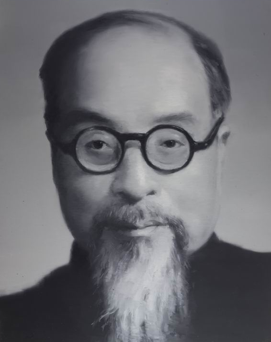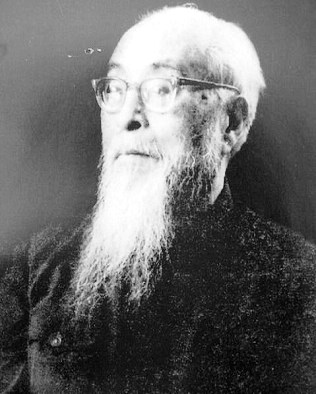<Back to Index>
- Philosopher Feng Yu-Lan, 1895
- Writer Thomas Carlyle, 1795
- 8th President of India Ramaswamy Venkataraman, 1910
PAGE SPONSOR


Feng Youlan or Fung Yu-Lan (simplified Chinese: 冯友兰; traditional Chinese: 馮友蘭;pinyin: Féng Yǒulán; Wade – Giles: Fung Yu-lan; 1895 – 1990) was a Chinese philosopher who was important for reintroducing the study of Chinese philosophy.
Feng Youlan was born on 4 December 1895 in Tanghe County, Nanyang, Henan, China, to a middle class family. He studied philosophy at Shanghai University, then at Beijing University where he was able to study Western philosophy and logic as well as Chinese philosophy.
Upon his graduation in 1918 he travelled to the United States, where he studied at Columbia University on a Boxer Rebellion Indemnity Scholarship. There he met, among many philosophers who were to influence his thought and career, John Dewey, the pragmatist, who became his teacher. Feng gained his Ph.D. from Columbia in 1925, though he spent the last two years working on his thesis (A Comparative Study of Life Ideals) back in China.
He went on to teach at a number of Chinese universities (including Guangdong, Yanjing, and Tsinghua in Beijing). It was while at Tsinghua that Fung published what was to be his best known and most influential work, his History of Chinese Philosophy (1934, in two volumes). In it he presented and examined the history of Chinese philosophy from a viewpoint which was very much influenced by the Western philosophical fashions prevalent at the time, which resulted in what Peter J. King of Oxford describes as a distinctly positivist tinge to most of the philosophers he described. Nevertheless, the book became the standard work in its field, and had a huge effect in reigniting an interest in Chinese thought.
In 1939, Feng brought out his Xin Lixue (New Rational Philosophy, or Neo - Lixue). Lixue was a philosophical position of a small group of twelfth century neo - Confucianists (including Cheng Hao, Cheng Yi, and Zhu Xi); Feng's book took certain metaphysical notions from their thought and from taoism (such as li and tao),
analysed and developed them in ways that owed much to the Western
philosophical tradition, and produced a rationalistic neo - Confucian
metaphysics. He also developed, in the same way, an account of the
nature of morality and of the structure of human moral development. When the Second Sino - Japanese War broke out, the students and staff of Beiping's Qinghua and Peking Universities, together with Tianjin's Nankai University, fled their campuses. They went first to Hengshan, where they set up the Changsha Temporary University, and then to Kunming, where they set up Southwest Associated University.
When, in 1946 the three Universities returned to Beijing, Feng instead
went to the U.S. again, this time to take up a post as visiting
professor at the University of Pennsylvania. He spent the year 1948 - 1949 as a visiting professor at the University of Hawaii. While he was at Pennsylvania, news from China made it clear that the communists were
on their way to seizing power. Feng's friends tried to persuade him to
stay, but he was determined to return; his political views were broadly socialist, and he thus felt optimistic about China's future under its new government. Once
back home, Feng began to study Marxist - Leninist thought, but he soon
found that the political situation fell short of his hopes; by the
mid 1950s his philosophical approach was being attacked by the
authorities. He was forced to repudiate much of his earlier work, and
to rewrite the rest – including his History – in order to fit in with the ideas of the Cultural revolution. Despite
all this, Feng refused to leave China, and after enduring much hardship
he finally saw a relaxation of censorship, and was able to write with a
certain degree of freedom. He died on 26 November 1990 in Beijing.